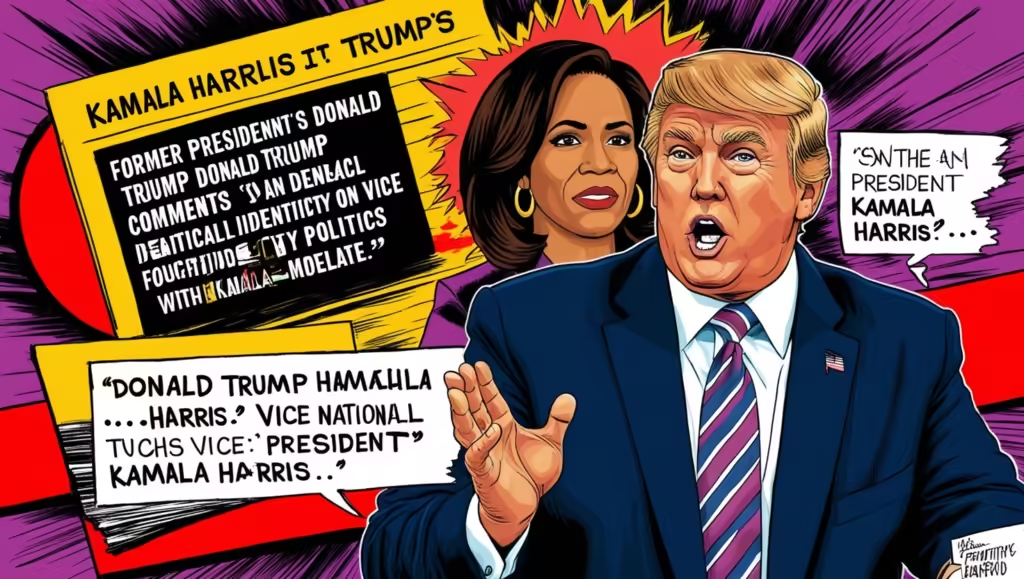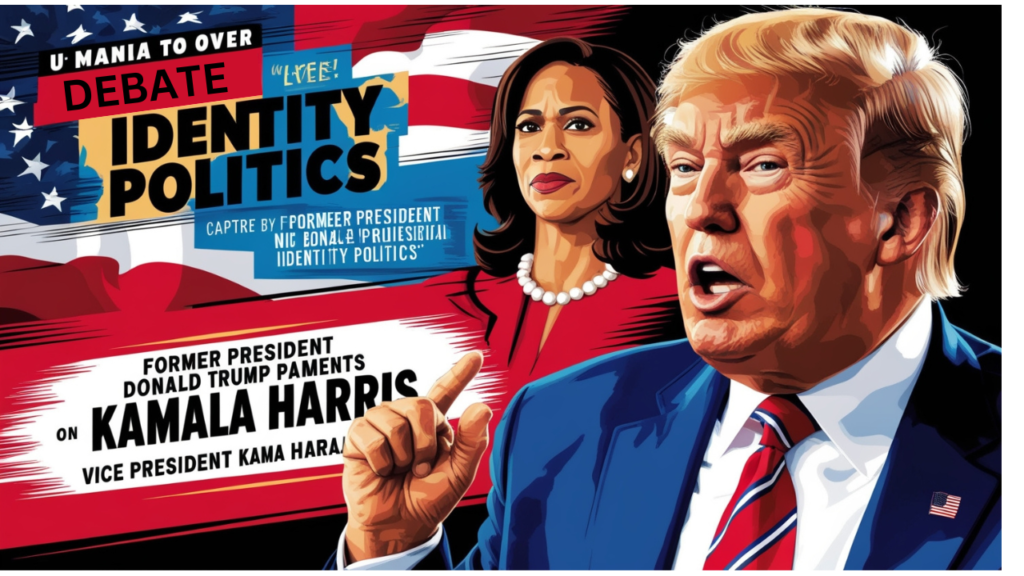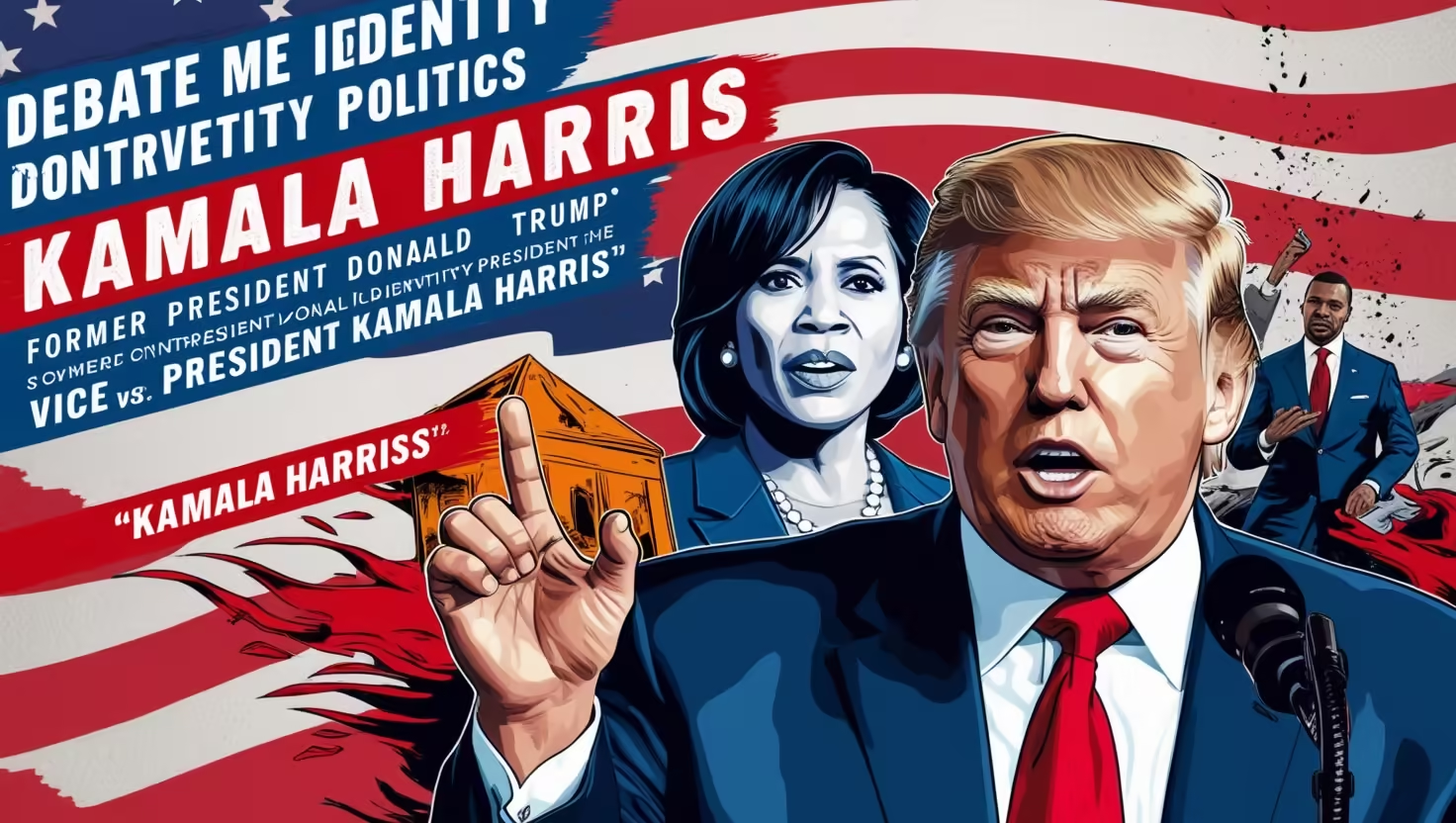Identity Politics Ignited: Trump’s Controversial Comments on Kamala Harris Spark National Debate
Is kamala Harris Black?
Former President Donald Trump’s recent comments questioning Vice President Kamala Harris’ racial identity have sparked significant controversy and debate, highlighting ongoing tensions in American race and identity politics. During a speech at the National Association of Black Journalists (NABJ) convention in Chicago, Trump suggested that Harris had altered her racial identity for political gain, stating, “I didn’t know she was Black until several years ago when she happened to turn Black” and questioning whether she identifies more as Indian or Black.
Context of Trump’s Remarks on Kamala Harris

Trump’s comments were made in response to a question about why Black voters should support him, given his history of racially charged remarks. He claimed that Kamala Harris, who is of Indian and Jamaican descent, had previously emphasized her Indian heritage and only recently embraced her Black identity. This assertion not only misrepresents Harris’ background but also perpetuates a narrative that undermines her authenticity as a Black woman in a political landscape that often scrutinizes the racial identities of public figures.
Kamala Harris has consistently identified as both Black and Indian, reflecting her mixed heritage. Her mother is of Indian descent, and her father is Jamaican, making her the first Vice President who is both Black and Asian American. She attended Howard University, a historically Black institution, and has been an advocate for civil rights throughout her political career, including her time in the Senate where she was a member of the Congressional Black Caucus.
Reactions from Political Figures and the Public

Trump’s remarks were met with immediate backlash from various political figures and commentators. White House Press Secretary Karine Jean-Pierre condemned the comments as “disgusting,” asserting that no one has the authority to dictate how someone identifies. Vice President Kamala Harris herself responded strongly, stating, “The American people deserve better,” and criticized Trump for fostering divisiveness and disrespect. She emphasized that differences should be seen as strengths rather than sources of division.
Public reactions have been mixed, with some expressing outrage at Trump’s comments and others defending him as merely questioning political authenticity. Harris’ husband, Doug Emhoff, described Trump’s remarks as indicative of a lack of character and a distraction from the real issues at stake in the upcoming election. The NABJ event also ignited internal discussions within the organization, leading to resignations and debates about Trump’s invitation to speak, highlighting the complexities of race and representation within journalism and politics.
Broader Implications for Race and Identity Politics
The controversy surrounding Trump’s comments underscores a broader debate about racial identity in America. It raises questions about how individuals navigate their identities in a political context and the implications of those identities on public perception and support. Trump’s history of questioning the racial identities of his opponents, including his promotion of the “birther” conspiracy against Barack Obama, reflects a pattern of using race as a political weapon.
As the 2024 presidential election approaches, the discourse around race and identity is likely to intensify. Harris’ candidacy, following President Biden’s withdrawal from the race, has reinvigorated discussions about representation and the significance of her dual heritage in a country grappling with its racial dynamics. The reactions to Trump’s comments may also influence how voters perceive candidates’ authenticity and commitment to addressing racial issues in America.
In conclusion, the controversy surrounding Trump’s remarks about Kamala Harris not only highlights the ongoing challenges of race and identity in American politics but also reflects the broader societal struggle to understand and respect the complexities of individual identities. As the election nears, these discussions will likely play a crucial role in shaping the political landscape.
More Interesting Articles
Joe Biden’s Shocking Exit from the 2024 Presidential Election: A Defining Turning Point for American
Tel Aviv Investigative Report: Drone Attack Exposes Security Lapses in Israel
Trump’s Bold Acceptance at RNC Convention: A Call for Unity Amidst
Melania Trump Makes a Rare RNC Appearance: Signals Potential Shift
South Korea and North Korea’s Latest Tensions: The Resurgence of Balloon
Nikki Haley Endorses Trump at Republican Convention: A Bold Move Toward Party Unity
Bangladesh Gripped by Deadly Unrest Over Job Quotas
Biden Proposes Bold Reforms to the Supreme Court: A New Era in Judiciary
Gunman Opens Fire at Donald Trump Rally: Breaking Down the Incident
Nancy Pelosi Treads Carefully, Calling for Biden to Make Final Decision
Emergency Evacuations: Lebanon on the Brink of Conflict
Tragedy Strikes: The 2024 Hajj Deaths Disaster in Mecca
Intensifying Tensions in the South China Sea: Chinese Coast Guard Clashes with Philippines Navy
India’s Diplomatic Chess Move: Renaming Tibet’s Places to Counter China’s Expansionist Play
Discover more from News 24 Media
Subscribe to get the latest posts sent to your email.


